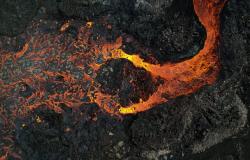
From COVID-19 to the crisis in Ukraine, and fears surrounding a potential cold war brewing between global superpowers, volatile, uncertain, complex, and ambiguous (VUCA) events have created a tsunami of ripple effects affecting individuals, groups, organizations, societies, nations, and the world. To keep pace with or even stay ahead of the VUCA environment, leaders and organizations are required to understand and embrace new leadership skills. A mixed-methods research design was conducted in a real-world context as part of the theoretical exploratory research project to collect data for knowledge creation. A mixed-methods research design was conducted in a real-world context as part of the theoretical exploratory research project to collect data for knowledge creation. Qualitative data from the interviews of the SME (practitioners) and participants from focus group discussion (FGD) as well as quantitative data were collected from subject matter experts (SMEs, typically leadership educators) and participants working in cultures where collective leadership is practiced. Three key leadership competencies with 12 skills for collective leadership were identified from this knowledge-creation process. From the 12 leadership skills, a preliminary collective leadership survey was proposed to help leaders and organizations develop greater self-awareness to plan, conduct, measure, and refine evidence-based leadership education and development for collective leadership. Limitations and future directions for this relatively new leadership research topic were identified and discussed.
Policy Implications
- Policymakers and leaders should consider the paradigm shift from hierarchical or heroic leadership to a collective leadership style to better manage challenging global and business environments.
- Collective leadership style is emerging leadership research in a VUCA environment. Policymakers and leaders need to know what the key qualities of this emerging and effective leadership style are.
- Moving forward, the proposed Collective Leadership Survey could be used as a tool to raise leaders' self-awareness and develop their meta-competency.
Photo by Björn Austmar Þórsson